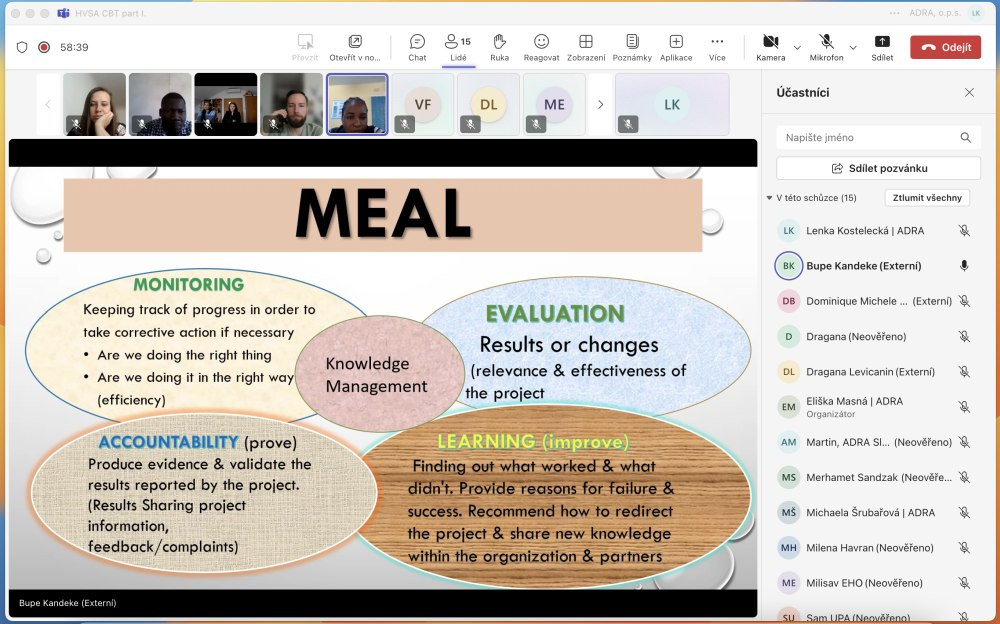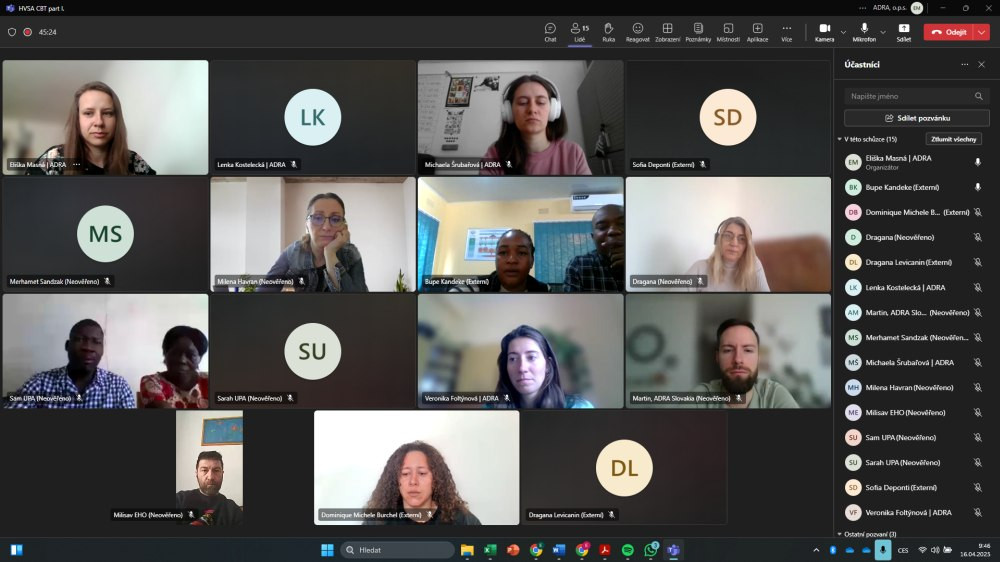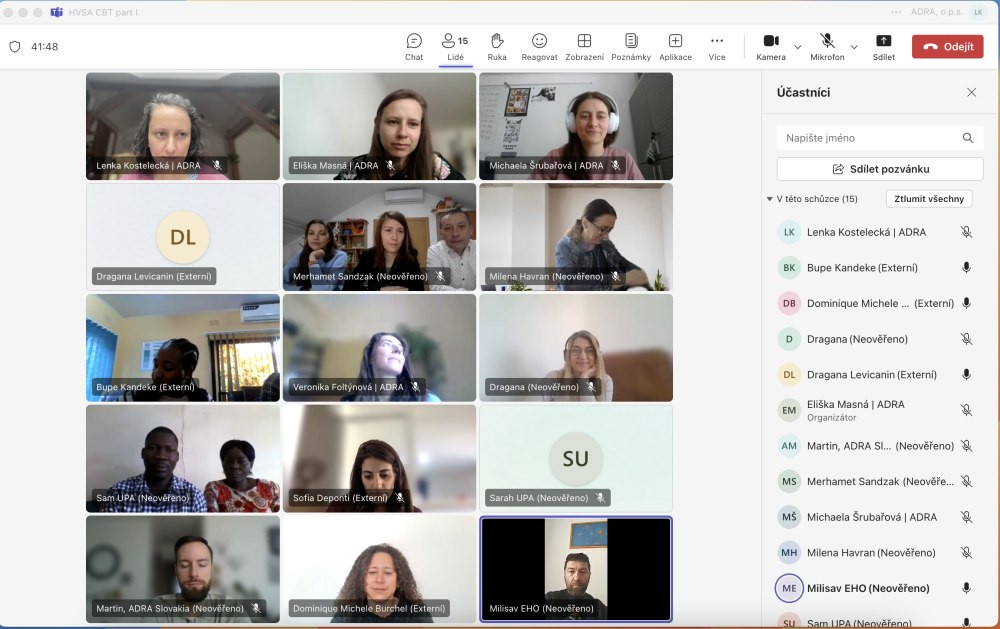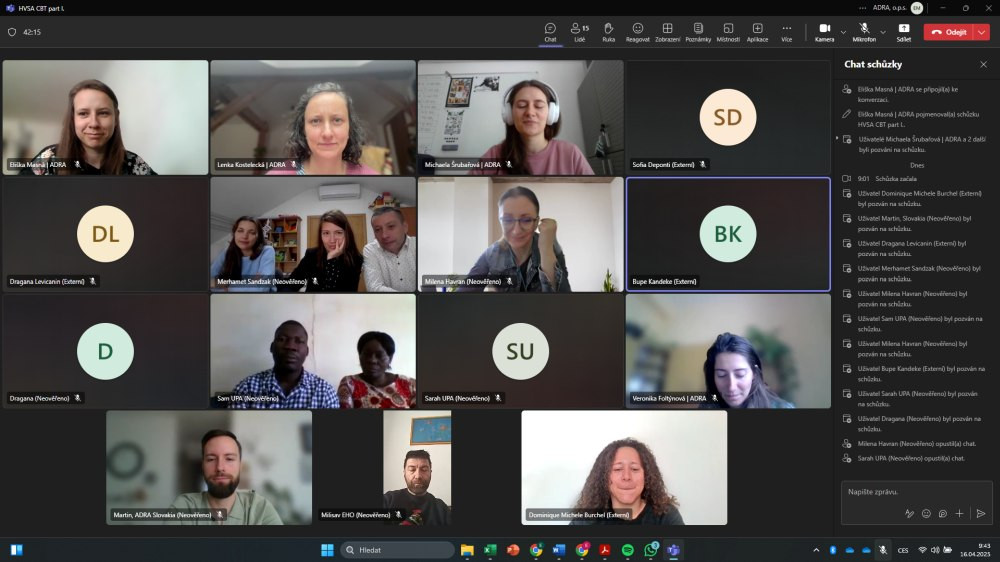A training on Monitoring, Evaluation, Accountability and Learning in Volunteering Projects (MEAL)

24. Apr 2025.
On April 16, 2025, the Ecumenical Humanitarian Organization participated in the training on Monitoring, Evaluation, Accountability and Learning in Volunteering Projects (MEAL) organized by the partner organization Adra Zambia within the framework of the project "Humanitarian Volunteering for Solidarity Actions" (HVSA).
The training brought together all project partners from Europe and Africa, with the aim of strengthening the capacities of organizations in the field of monitoring, evaluation, accountability and learning within volunteer management. During the one-day session, participants analyzed through interactive workshops, scenarios and discussions how the MEAL approach can improve the quality, impact and sustainability of volunteer programs.
The training topics included:
• Basic principles of MEAL in the context of volunteering projects;
• Use of monitoring and evaluation tools (volunteer profiling, questionnaires, KPIs, training records and success stories);
• Methods for measuring the results and outcomes of volunteer work;
• The role of accountability and feedback in improving organizational performance;
• Applying lessons learned to improve future activities.
In particular, real-life scenarios were analyzed, including challenges such as mismatches in volunteer skills, lack of documentation, cultural differences, impaired team relationships and inadequate engagement. Participants had the opportunity to define constructive approaches to resolving these situations through group work.
The training on Monitoring, Evaluation, Accountability and Learning in Volunteering Projects (MEAL) is part of the broader objective of the HVSA project, which promotes social inclusion, the development of digital and life skills, and the reduction of climate change risks.
The HVSA project, supported by the European Union through the European Solidarity Corps program, is dedicated to strengthening the social inclusion and integration of vulnerable groups, supporting their personal, social, economic and educational development. The project brings together eight partners, including two EU organizations (Czech Republic and Slovakia) and six host organizations from outside the EU (Serbia, Uganda, Zambia), who are working together to recruit, prepare and deploy 24 European Solidarity Corps volunteers to work in local communities.
By improving the capacities of partner organizations, this project contributes to strengthening support for vulnerable communities in Serbia, Uganda and Zambia, as well as to the sustainability of volunteering activities in these areas.


